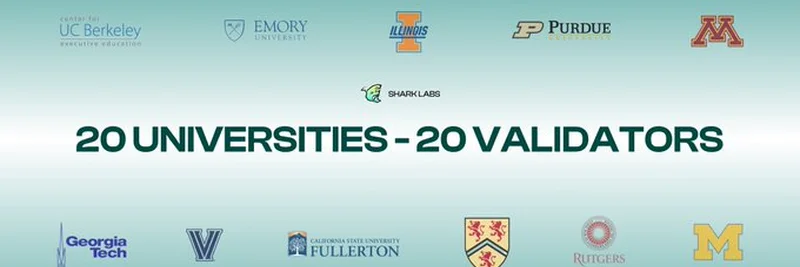Hey there, crypto enthusiasts! If you’ve been keeping an eye on the blockchain space, you’ve probably heard the buzz around SharkLabs’ latest move. They’ve teamed up with 20 prestigious universities—like Princeton, UPenn, and Duke—to run Solana validators with a whopping $600 million+ in stake. This isn’t just a tech flex; it’s a game-changer for blockchain education and adoption. Let’s dive into what this means and why it’s making waves!
What Are Solana Validators, Anyway?
Before we get too excited, let’s break it down. A validator is like a referee in the blockchain world. It’s a computer that checks and confirms transactions on the Solana network, ensuring everything runs smoothly and securely. Think of it as the backbone that keeps the decentralized system honest. SharkLabs is putting these validators in the hands of top universities, which is a brilliant way to blend education with real-world tech experience.
The Big Idea: Education Meets Innovation
So, what’s the goal here? According to Nick from @ghostofharvard, it’s all about education. SharkLabs is targeting university students—some of the brightest minds of the future—to teach them about blockchain, specifically the Solana ecosystem. These students aren’t just learning from textbooks; they’re getting hands-on with validators, generating revenue, and even hosting events. It’s a win-win: students gain skills, and the Solana network gets a boost from fresh talent.
The initiative covers all costs and handles the setup, making it super easy for universities to jump in. Over time, SharkLabs plans to hand over operational tasks to the students after giving them a solid foundation through step-by-step training. How cool is that?
Why Universities? The Talent Pool
You might wonder why focus on universities. Well, these institutions are home to the next generation of innovators, entrepreneurs, and leaders. By exposing them to Solana early on, SharkLabs is planting seeds for a future where blockchain is second nature. Imagine a world where grads from places like UC Berkeley or Vanderbilt are already pros at running decentralized networks—pretty exciting, right?
The Players Involved
The lineup is impressive! Here’s a quick rundown of some of the participating schools: Princeton University, University of Pennsylvania, Duke University, Columbia University, UC Berkeley, Emory University, University of Illinois, Purdue University, University of Minnesota, Georgia Tech, University of Southern California, California State University Fullerton, Dalhousie University, University of Oregon, Vanderbilt University, and more. Each school is running its own validator, creating a network of 20 across the U.S.
What’s Next?
This is just the beginning. SharkLabs and the universities are set to share more updates, so keep an eye on @sharklabs_sh and the school-specific blockchain clubs (like @pton_blockchain and @PennBlockchain). The potential here is huge—not just for Solana’s growth but for how we think about education in the crypto era.
Why This Matters for Meme Token Fans
Even if you’re more into meme tokens than validators, this move has ripple effects. A stronger Solana ecosystem means more room for innovative projects, including those quirky meme coins we love. Plus, with students getting involved, we might see some wild new ideas (and tokens!) emerge from these university labs. Stay tuned!
What do you think about this university-validator mashup? Drop your thoughts in the comments, and let’s chat about how this could shape the future of blockchain. For more juicy crypto updates, check out meme-insider.com and join the conversation!


